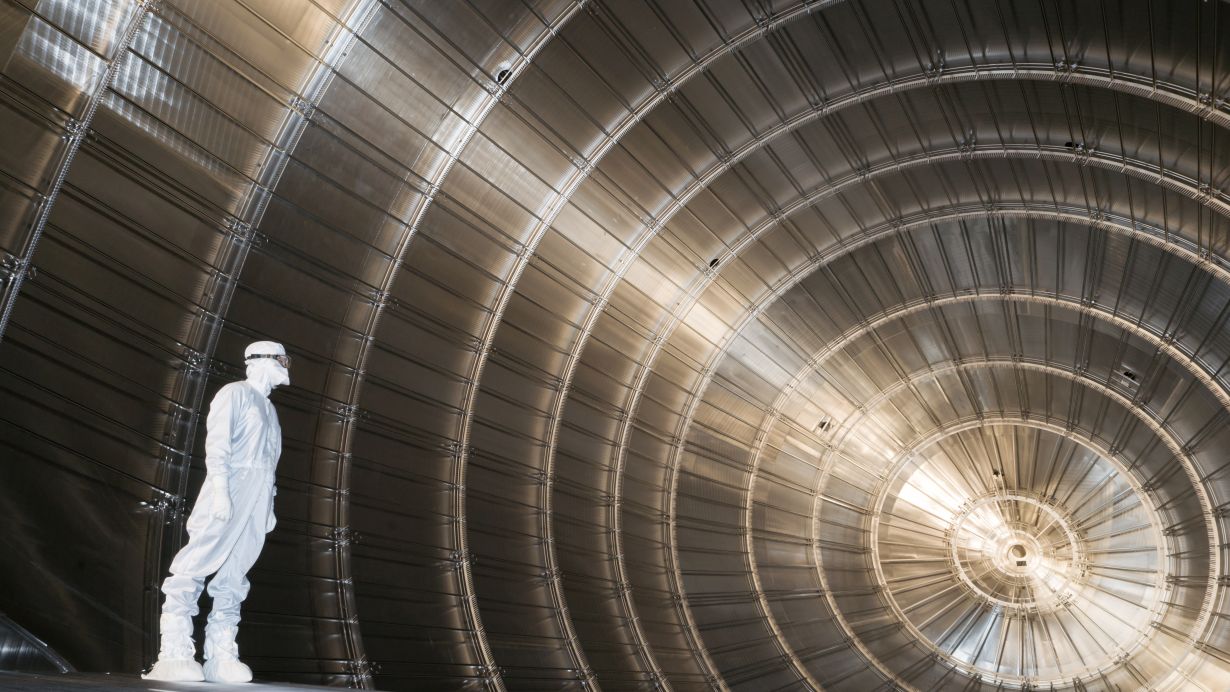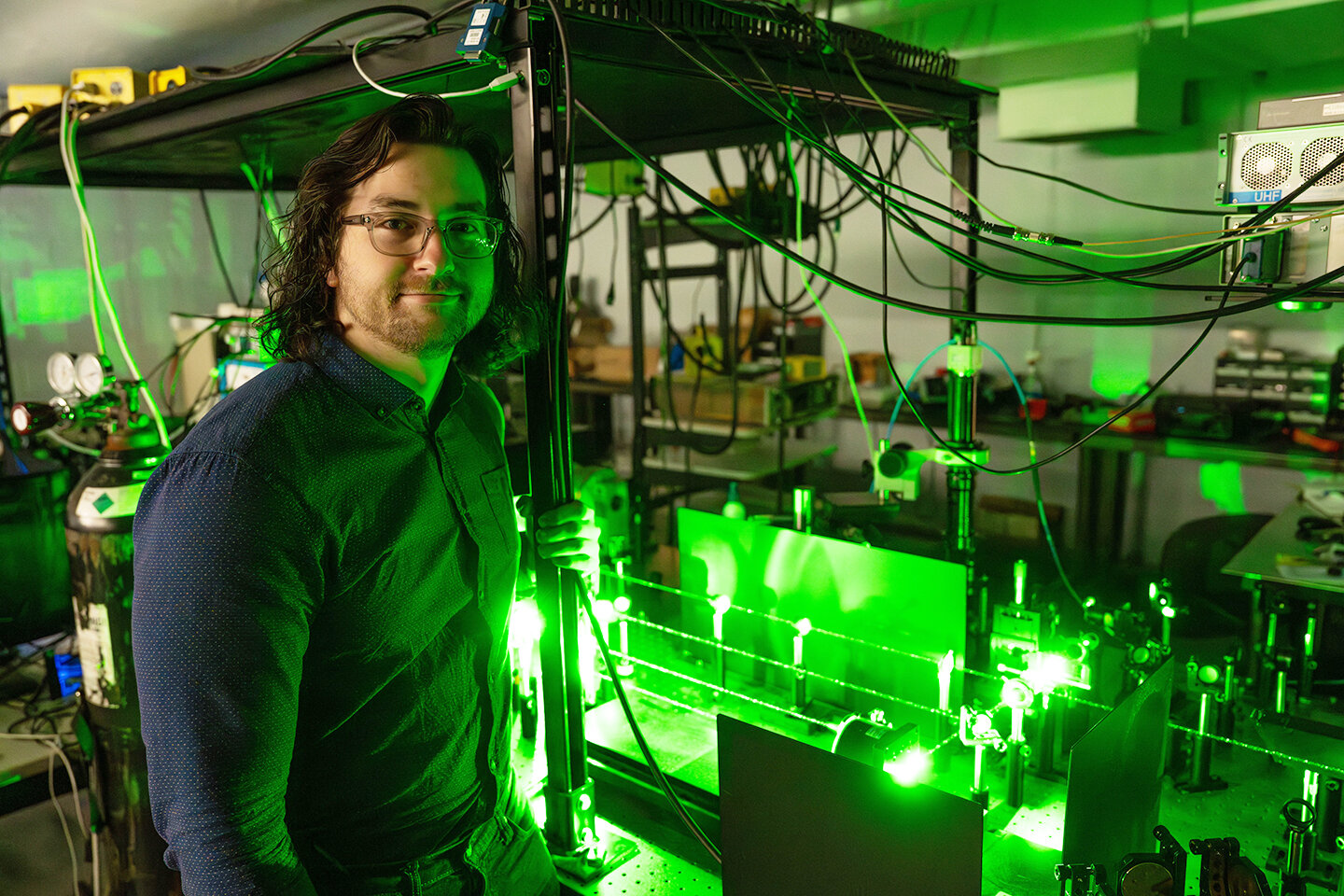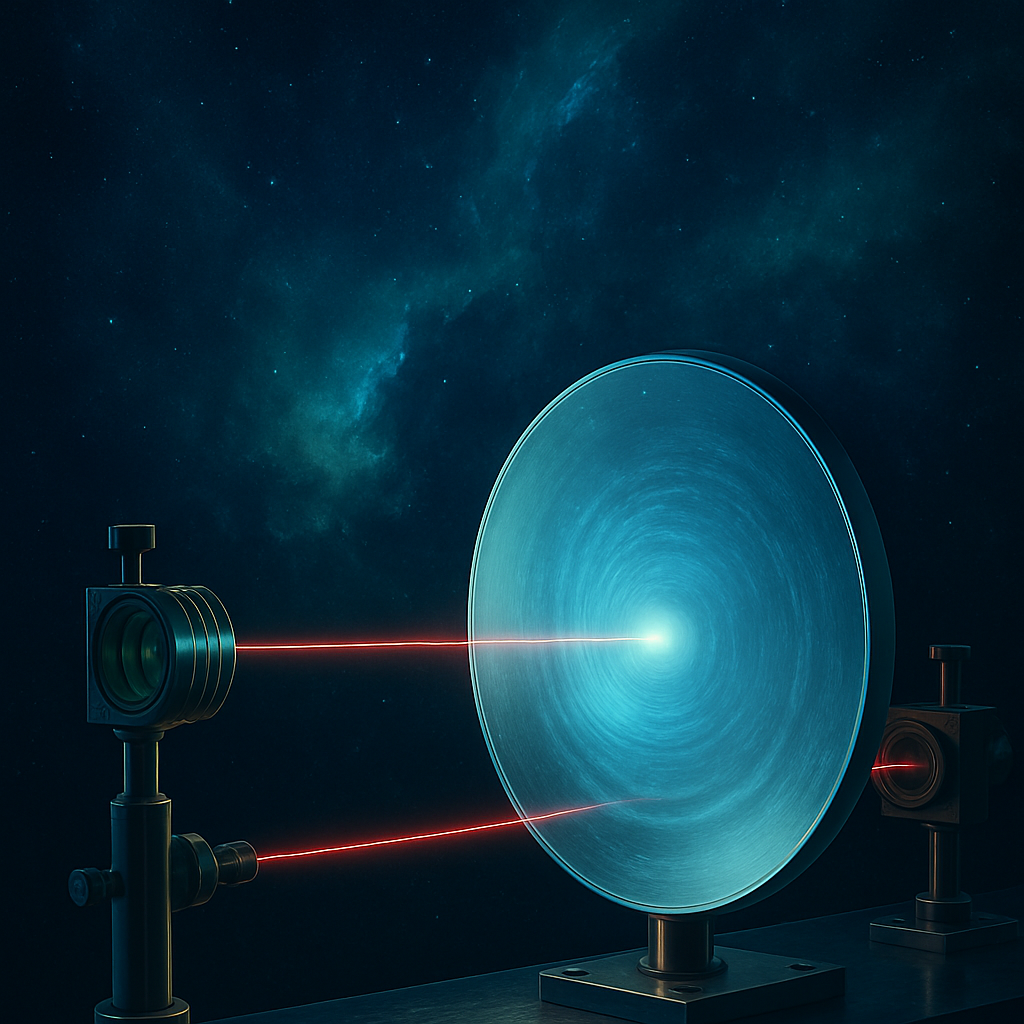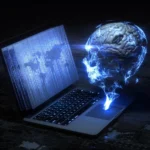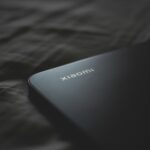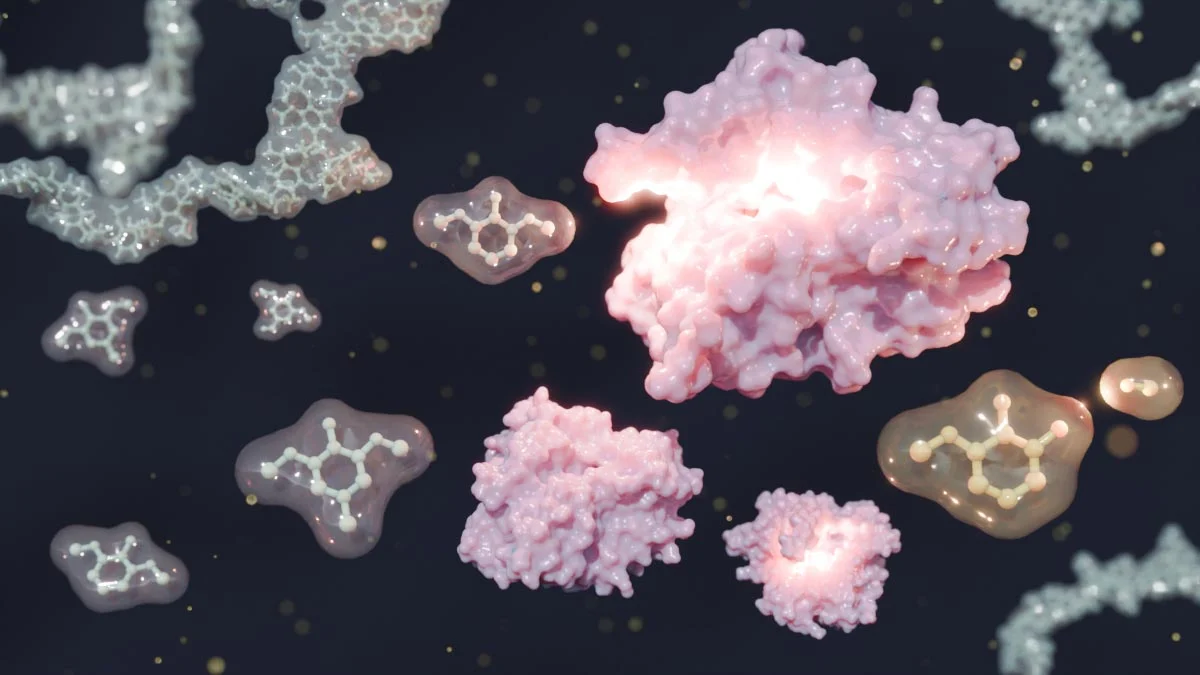A Silent Revolution in Physics
In a groundbreaking experiment, physicists have achieved the seemingly impossible: they silenced quantum noise within mirrors used in gravitational wave detectors. This feat challenges long-held beliefs in quantum mechanics and opens new avenues for exploring the universe.
The Quantum Noise Conundrum
Quantum noise, the random fluctuations inherent in quantum systems, has long been a limiting factor in the sensitivity of instruments like the Laser Interferometer Gravitational-Wave Observatory (LIGO). These fluctuations can mask the faint signals of gravitational waves, ripples in spacetime caused by massive cosmic events.
Traditionally, scientists have employed techniques like “quantum squeezing” to reduce this noise, enhancing the detectors’ ability to pick up subtle signals. However, completely eliminating quantum noise was thought to be unattainable.
The Breakthrough Experiment
Researchers at UC Riverside have developed an innovative adaptive optics technology that projects low-noise infrared radiation onto the mirrors’ surfaces. This approach effectively cancels out quantum noise, allowing the mirrors to operate with unprecedented clarity.
This technology is a prototype for a new class of instruments that use non-imaging optical principles, a method never before applied in gravitational wave detection. By delivering precise optical corrections, the system enables higher laser power levels within the interferometer, expanding our observational capabilities.
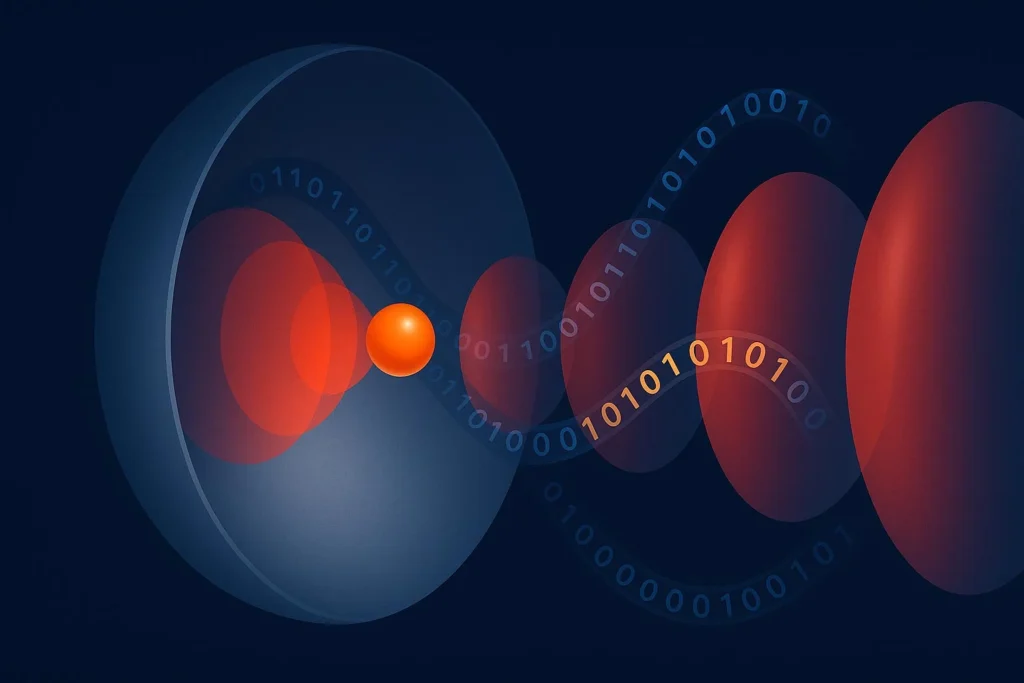
An illustration showing a standing light wave reflected from a curved mirror with a spherical particle at the centre. A stream of information, represented by 0s and 1s, emerges from the system. Credit: Dr. James Bateman
Implications for Gravitational Wave Astronomy
The ability to suppress quantum noise has profound implications for gravitational wave astronomy. With clearer signals, scientists can detect more distant and fainter cosmic events, potentially unveiling phenomena previously beyond our reach.
Moreover, this advancement paves the way for next-generation observatories like the Cosmic Explorer, a proposed U.S. facility that would be ten times the size of LIGO. Such instruments could observe the universe as it was when it was only 0.1% of its current age, offering insights into the early cosmos.
A New Chapter in Quantum Mechanics
This experiment not only enhances our observational tools but also challenges our understanding of quantum mechanics. By demonstrating that quantum noise can be effectively nullified, it prompts a reevaluation of the fundamental limits imposed by quantum theory.
As we continue to refine these technologies, we edge closer to answering some of the most profound questions in physics, from the nature of black holes to the rate of the universe’s expansion.
Reference: “Backaction suppression in levitated optomechanics using reflective boundaries” by Rafał Gajewski and James Bateman, 11 April 2025, Physical Review Research.
DOI: 10.1103/PhysRevResearch.7.023041
Curious to Learn More?
What other quantum frontiers await discovery? Explore the latest breakthroughs in quantum physics and gravitational wave astronomy at DailySciTech.com.




